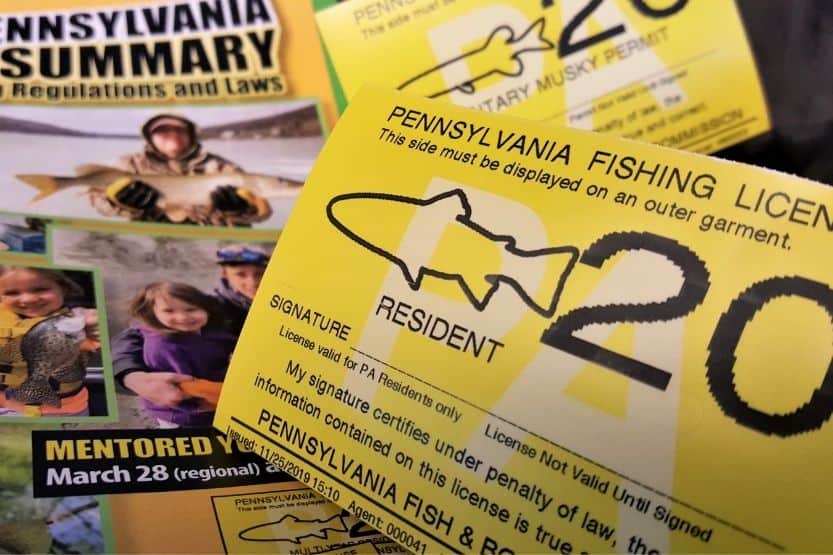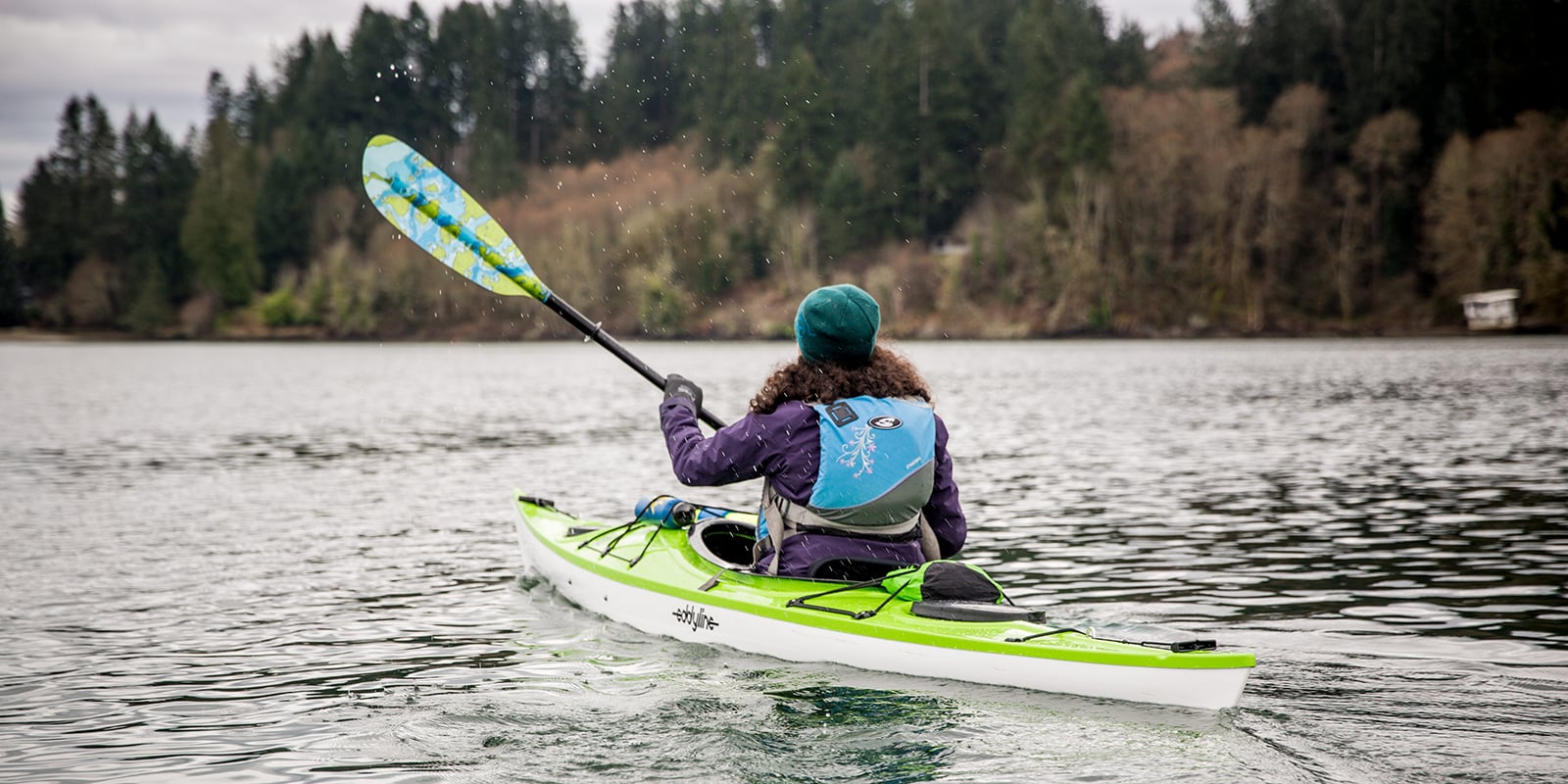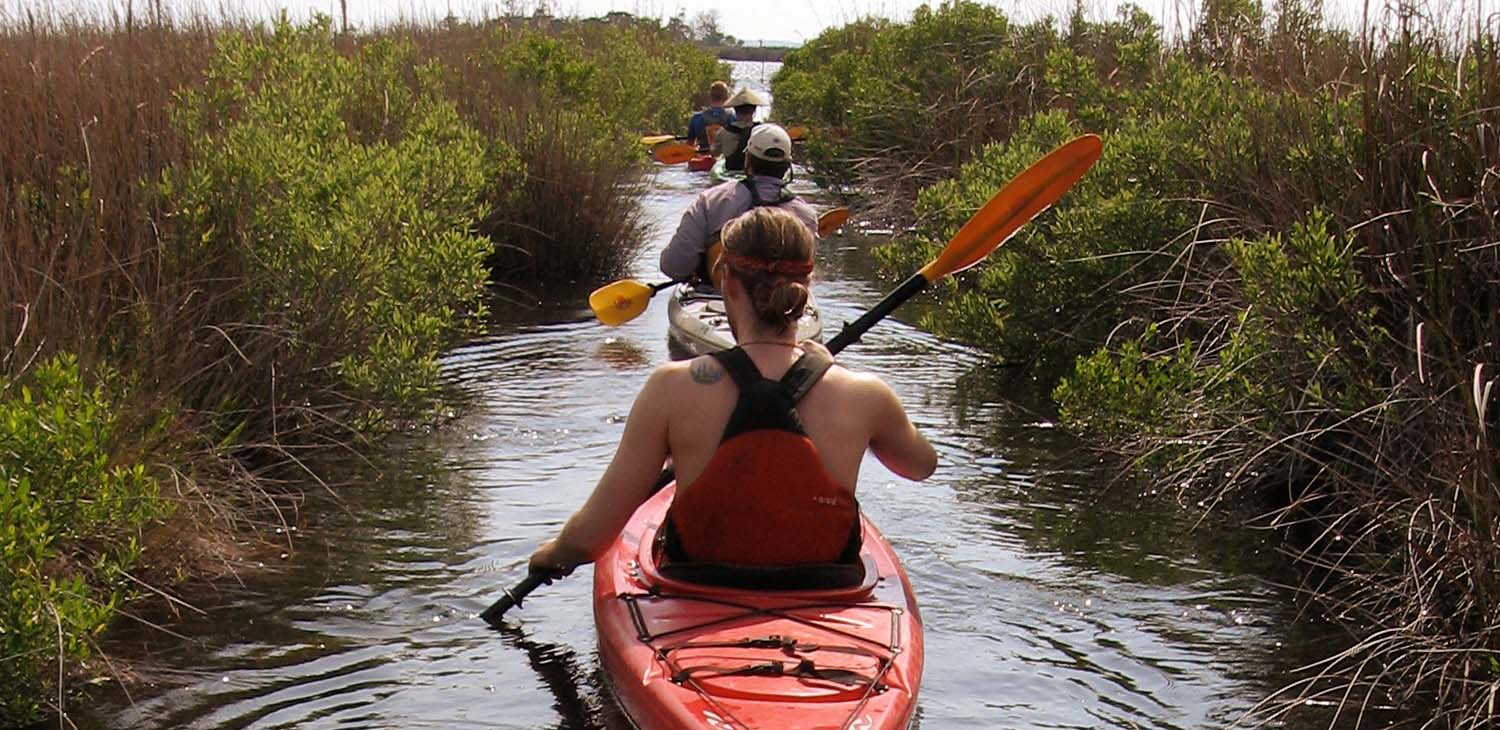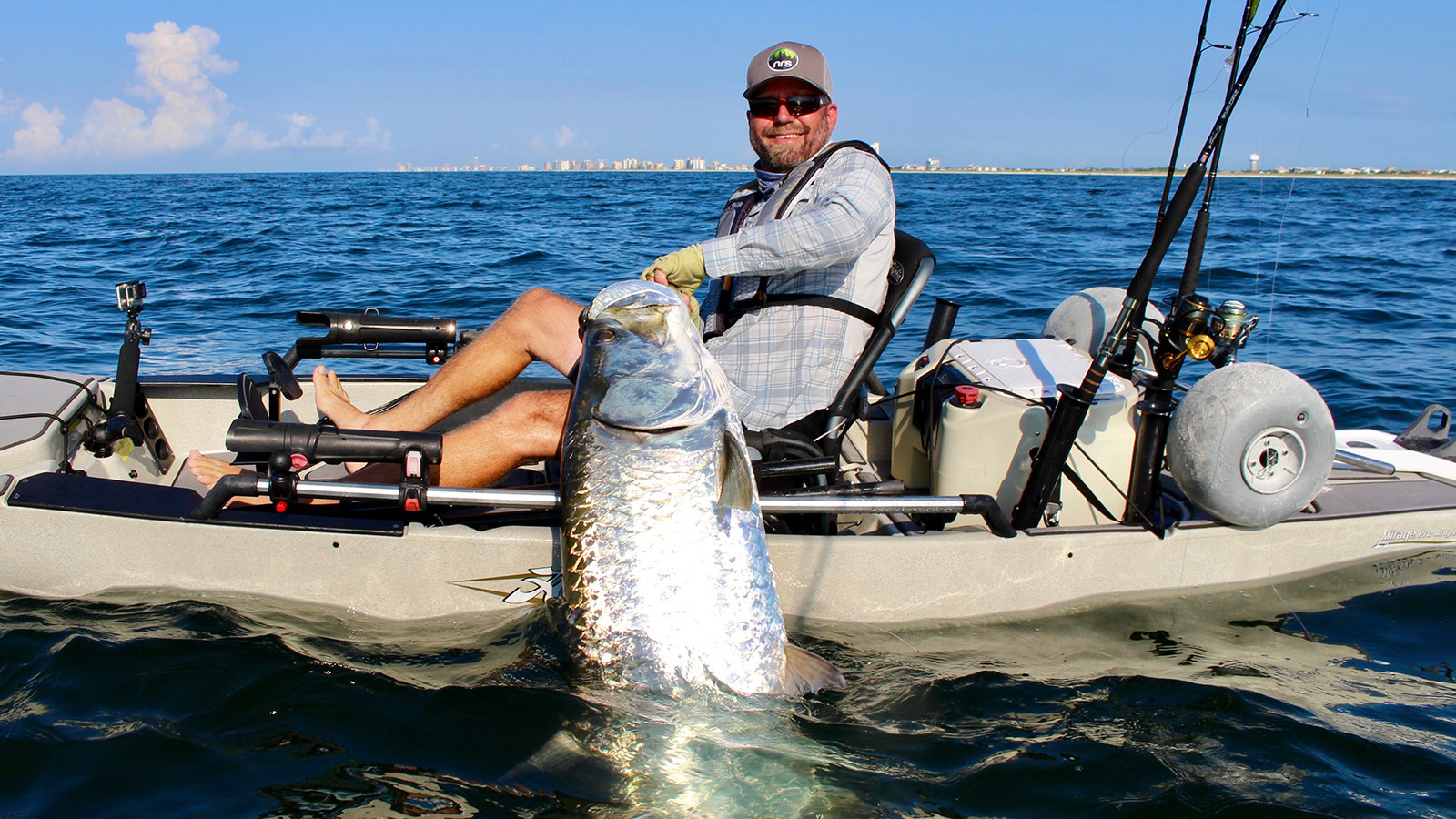
Kayaking Rules and Regulations: A State-by-State Guide 2026
If your car was not registered, stickered, and licensed, would you drive it around?
A similar rule applies to all mechanically-driven boats, vessels navigating federal waters, and vessels operating on the high seas.
Do you have a paddle-powered kayak, though? Can you paddle anywhere you like without registering your kayak?
Taking a look at current boating laws is an excellent place to start!
By registering your kayak, you are essentially allowing it to be used. If you need to register your kayak, you cannot launch it legally on public waters without it.
You can think of it as registering a vehicle:
Both your car and boat have license plates, stickers, and registrations.
The registration card - or certificate of number - must be on board as proof of registration on all kayaks that navigate public waters.
As a result, I mean "numbered appropriately" as follows:
Vessels should be marked with decal numbers on the port and starboard sides
There should be at least three inches between each letter, and they should be written in capital letters
Between numerals and letters, spaces and hyphens should be used
Use a color that contrasts with the color of the hull for the numbers
Getting caught in public waters without these requirements or necessary documents on board will most likely result in you getting a ticket.
It is also important to mention the boat title as another similarity between cars and boats. The kayak's current owner purchased this legal document one-time as proof of ownership, which is not included in the boat registration.
Registration Is Required For What Types Of Watercraft?
Paddlers or recreational boat operators must ensure their boats comply with state and federal regulations and carry the required safety equipment.
The registration of boats is, of course, one of them:
The state of principal use should require registration of any recreational watercraft equipped with a gas, diesel, or electric motor, including trolling engines.
Almost all states require boat registration if the boat uses a motor or other mechanical propulsion.
It sounds simple enough.
Registration is also required in some states for unpowered watercraft like kayaks, canoes, and paddleboards.
Most US-based paddlers get confused at that point.
Are inflatable kayaks required to be registered?
Purchasing an inflatable kayak probably wasn't your first thought regarding boat registration. I think registering one is as silly as you do:
This thing can be folded up and thrown into the backseat of your car!
In most states, inflatable boats are not subject to boat registration rules. Regardless of whether your inflatable kayak is mechanically powered, some states require that you register it.
Each state will have its own regulations for inflatable watercraft to navigate public waters. If they require you to register your vessel, they may consider different aspects of the ship to be necessary, including:
- Your inflatable kayak's length No matter how it's propelled Lands owned by the state if it is used In addition, even if the DMV does not require it, the DNR may. Keep in mind that state-owned lands are subject to site-specific regulations.
Kayaks with motors: What should you do?
Unless explicitly exempted, the department in charge of boat registration must register all motor-powered vessels.
In most cases, yes, a motor-powered boat must be registered. You must check with your local authorities, though. The same applies regardless of whether it is propelled primarily by a trolling motor.
Kayak Registration Requirements in Different States?
As you're about to discover, the watercraft registration requirements can differ quite drastically from one state to another.
Registration requirements for kayaks in Washington, DC
No matter how long a vessel's hull is or whether it's motor-powered or paddle-powered, Washington DC boating laws require that it be registered and titled. In general, watercraft operated in DC waters includes kayaks, canoes, and USCG-documented boats.
Kayaks registered out-of-state that are used for less than 50 consecutive days in District of Columbia waters qualify for an exemption.
Registration of boats in Washington, DC, is handled by the MPD's DC Harbor Patrol.
Registration requirements for kayaks in Ohio
All recreational boats - including kayaks, canoes, inflatable boats, pedal-powered boats, and personal watercraft - must be registered by the Ohio Division of Parks and Watercraft.
Some exceptions do exist, however. If the vessel navigates Ohio waters for fewer than 60 days, it can be documented with the US Coast Guard or registered in another state.
Requirements for registering a kayak in Minnesota
The Department of Natural Resources requires registration of all motorized watercraft (regardless of the vessel's length) and non-motorized boats over 10 feet. A kayak, canoe, SUP, and inflatable boat fall into this category.
The US Coast Guard does not require watercraft licenses for non-motorized boats under 10 feet.
How to register for a kayak in Iowa
The Department of Natural Resources requires registration for all motorized boats operating in Iowa waters and paddle-propelled kayaks over 13 feet. While you don't have to register to kayak in Iowa waters for 60 consecutive days, you can still do so.
It is exempt from this rule for kayaks and other vessels that do not have a motor or sail as long as the hull is less than 13 feet in length. A kayak that is less than 7 feet long or does not have a motor or sail is also not required to register if it is less than 7 feet long.
Requirements for registering a kayak in Pennsylvania
If you paddle in Pennsylvania's state parks or forests, you must register your vessel. That rule applies if a small boat, kayak, or canoe is motor-powered.
A state park or Pennsylvania Fish and Boat Commission office may issue you a launching permit - only for non-motorized vessels.
Only powered vessels are required to be registered in certain states
Kayaks are generally recognized as recreational, non-powered vessels in many forms. Your kayak becomes a "motorized vessel" when you attach a trolling motor to it.
How can it be treated as one if it's not a powered boat?
A kayak equipped with a trolling motor will likely need to be registered according to your state's boating laws.
That's not a surprise.
Here are a few examples to get you started, but you should check local laws regarding kayak registration.
Illinois - The state's boating laws recently changed. Boating regulations were updated by the state boat commission, removing the requirement to register unpowered kayaks. Illinois' Department of Natural Resources requires registration and title for powered watercraft with trolling motors.
State boating regulations in Delaware require mechanically-propelled kayaks to be registered only by Delaware residents. The exceptions are kayaks without motors, canoes, and out-of-state paddlers navigating Delaware waters for less than 60 days.
All watercraft in Oklahoma must be registered, except paddle-propelled or manually-powered boats, such as kayaks, canoes, and paddle boats. Paddling in public waters, however, still requires a boating permit.
If you operate a motor vessel on public waterways or use an electric trolling motor, you must register the vessel. Even if a boat's primary propulsion source is not an engine, registration is required.
Kayak Registration: A Paddler's Guide
Discover what documents, forms, and applications you need to register your kayak and paddle legally in your state, as well as kayak registration fees, renewals, and more!
Kayak Registration: What Information Is Needed?
The information needed to register a kayak may vary from state to state, so you should first research your state's registration requirements. Before beginning the application process, it wouldn't hurt to gather the following information:
- Describes the kayak's length
- Kayak model and make
- A HIN is an identification number for a hull
- Whether the vessel is powered by a motor or by manual propulsion
- Certificate of origin and bill of sale
The process's most time-consuming - and sometimes nerve-racking - step is gathering all the information and supporting documents.
Once you've completed the registration process, it's pretty straightforward:
- The application form must be completed
- Obtain a bill of sale, title certification, and manufacturer's statement of origin as proof of ownership.
- The registration fee must be paid
That's about it!
State DMVs handle kayak registration in most states. Boat registration is often driven by the departments of Fish and Game, Natural Resources, Licensing, and, in some states, Finance.
Don't expect anyone to "bend the rules" when you're in doubt. Check with the local government. You cannot expect your application to be approved - or your registration to be issued - if you do not submit the proper paperwork.
Can you tell me how much it costs to register for a kayak?
When registering your boat, fees may vary from state to state - and may be based on the type and length of your boat. To determine the registration fees specific to your state, visit their official website.
The price should be no problem; it usually ranges from $25 to $250.
The costs of registering a kayak aren't that high, considering the benefits it provides to the waterways and the funding it provides for maintenance, conservation, and upgrades. Consider it a contribution, not a fee.
Can You Tell Me How Long It Takes To Register A Kayak?
Registration applications can often be submitted online, in person, or by mail to the boat registration office in your area.
Paperwork submission should be relatively quick, especially if everything is done electronically. The application process is still case-by-case.
The processing of your application and the delivery of your registration card should take approximately two weeks. It may be possible for an approved boat registration agent to issue you a temporary registration so you can paddle in public waters for the time being.
Kayak Registration - How Long Does It Last & How To Renew It
You receive a registration sticker or decal when you register your kayak. You'll find that the duration varies from state to state, but you're generally looking at one to three years.
A registration renewal form should be automatically sent to you by your state's boat registration authority - sometimes months before the current registration expires. Furthermore, you can renew it online as well.
If any errors are found, correct them before paying the renewal fee and submitting your renewal form.
Do canoes need titles?
No, canoes do not typically need titles. However, some states may require canoes to be registered and have a title to be legally operated on public waterways. It's essential to check the local regulations in your area to determine if your canoe needs to be titled.
Frequently Asked Questions
What is the age requirement for kayaking?
The age requirement for kayaking varies by state, but most states do not have a minimum age for kayaking. However, children under the age of 18 may be required to wear a life jacket and some states may require children to be accompanied by an adult.
Do I need to register my kayak?
The requirement for kayak registration varies by state. Some states require kayaks to be registered, while others do not. It is important to check with your local government agency for specific requirements.
Is it mandatory to wear a life jacket while kayaking?
Yes, in most states, it is mandatory to wear a properly fitting life jacket while kayaking. This requirement is in place to ensure the safety of kayakers in the event of an emergency.
Are there any restrictions on where I can kayak?
Yes, there may be restrictions on where you can kayak, such as designated wildlife areas or areas with strong currents. It is important to familiarize yourself with the laws and regulations in the area where you plan to kayak to ensure a safe and enjoyable experience.
Do I need to carry a sounding device while kayaking?
Some states may require kayakers to carry a whistle or other audible device to signal for help in case of an emergency. It is important to check with your local government agency for specific requirements.
Are there any restrictions on kayaking at night?
Some states may have restrictions on kayaking at night, such as requiring lights on the kayak or limiting the hours of operation. It is important to check with your local government agency for specific requirements.











